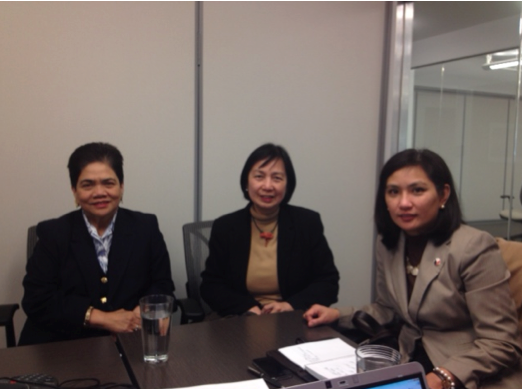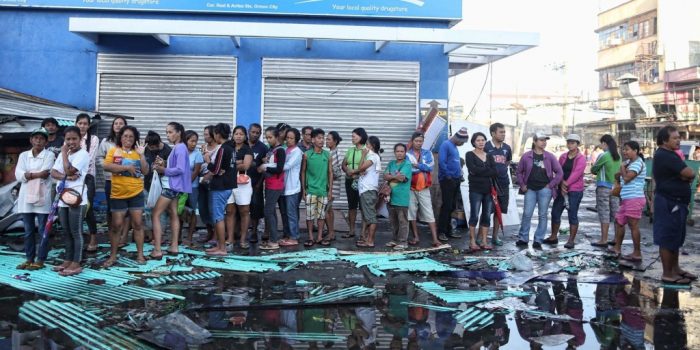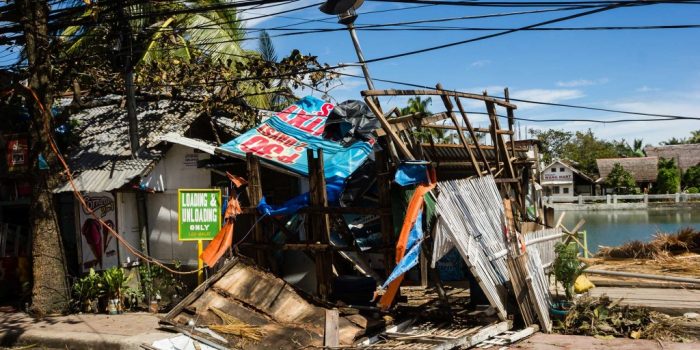A Report from the Philippines Embassy
The situation in Philippines is slowly improving but emergency funding needs still total $300 million, most of it for emergency shelter and food security. I learned this today from a special briefing in the CDP Washington office from Maria Andrelita S. Austria, the Deputy Chief of Mission of the Embassy of the Philippines. My colleague […]

The situation in Philippines is slowly improving but emergency funding needs still total $300 million, most of it for emergency shelter and food security.
I learned this today from a special briefing in the CDP Washington office from Maria Andrelita S. Austria, the Deputy Chief of Mission of the Embassy of the Philippines. My colleague Cecilia Calvo and I were able to meet with Ms. Austria through a special introduction from the Consuelo Chito Madrigal Foundation, which is based near Manila.
Based on latest estimates, Ms. Austria reported that the official death toll currently stands at 2,300 people and is expected to rise to about 4,000. But it is too early to tell what the final death tally will be, since emergency crews have not been able to reach all the isolated villages and islands affected by the storm. She told us that there are approximately 700,000 people that have fled their homes and only about half of them have made it to over 1,000 temporary shelters. She estimated that nearly 11 million people in 9 regions have been affected by the Typhoon.

She said the major focus at this time was on breaking down the big pallets of food and creating “food packs.”
The most immediate threats to life are: lack of safe drinking water, lack of shelter, an inability to treat trauma injuries, and lack of sanitation.
We asked what Americans can do. She said that the government is still encouraging volunteers, with the exception of medical teams for which there are no facilities. Grants as well as volunteers are being coordinated by the National Disaster Risk Reduction Management Council, a government agency.
I asked what message she has for the American people. “This will be long term effort,” she said.
We here at CDP agree. We have created the CDP Typhoon Haiyan Recovery Fund and all proceeds will be invested in long term recovery, rebuilding and resilience activities.
Special thanks to Cecilia Calvo for contributions to this overview.
More like this

Haiyan Recovery Still Has Long Road Ahead

